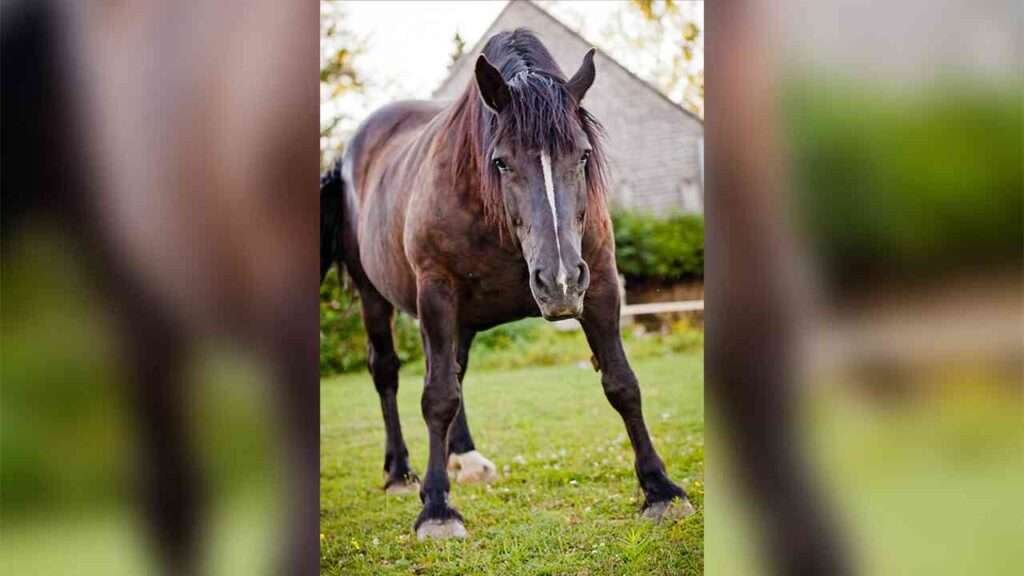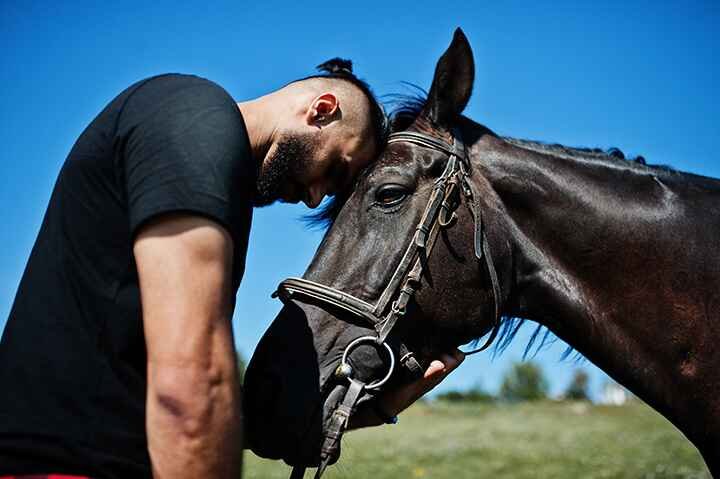The journey of mare pregnancy is not only a physical transformation but also a period marked by distinct behavioral changes in the mare. As caretakers, recognizing and understanding these behavioral shifts is crucial for providing optimal care and ensuring the well-being of both the pregnant mare and the developing foal. Let’s explore the common behavioral changes that occur during horse pregnancy.
1. Increased Restlessness:
As a mare progresses through pregnancy, you may observe increased restlessness in this pregnancy period. This restlessness can be attributed to hormonal changes and the physical discomfort associated with the growing foal. Mares may pace, circle their stalls, or exhibit a general unease.
2. Altered Social Interactions:
Pregnant mares might display changes in their social behavior. Some may become more withdrawn and prefer solitude, while others might seek increased interaction with other horses. Understanding these variations in social behavior helps in creating a suitable environment for the pregnant mare.
3. Changes in Appetite:
Hormonal fluctuations can influence the mare’s appetite. Some pregnant mares may experience an increase in appetite, while others may exhibit a decrease. Monitoring changes in eating habits and adjusting the diet accordingly is essential to ensure proper nutrition for both the mare and the developing foal.
4. Nesting Behavior:
As the due date approaches, some pregnant mares may exhibit nesting behavior. This can include pawing at the ground, circling, or rearranging bedding in preparation for foaling. Providing a quiet, comfortable foaling environment can help alleviate the stress associated with nesting instincts.
5. Protective Instincts:
Pregnant mares often develop heightened protective instincts, especially as they get closer to foaling. They may become more vigilant and aware of their surroundings, demonstrating a natural inclination to safeguard their unborn foal.
6. Changes in Response to Touch:
The sensitivity of a pregnant mare to touch may change. Some mares become more tolerant, while others may become touch-sensitive or exhibit signs of discomfort. Understanding and respecting the mare’s preferences contribute to her overall well-being.
7. Increased Vocalization:
Hormonal changes and the mare’s response to physical discomfort can lead to increased vocalization. Some pregnant mares may whiny more frequently or exhibit unique vocal expressions. Monitoring vocal cues can provide insights into the mare’s emotional state.
8. Seeking Seclusion:
As parturition approaches, some mares may seek seclusion. This behavior is instinctive, as mares in the wild often isolate themselves when preparing to give birth. Providing a quiet and secure space supports the mare during this natural process.
9. Affectionate Behavior:
On the flip side, certain mares may display increased affection toward their caretakers. They may seek more attention, enjoy grooming sessions, or exhibit behaviors indicative of a stronger bond.
Conclusion:
Understanding and acknowledging the behavioral changes during horse pregnancy is essential for creating a supportive environment. Each mare is unique, and being attuned to individual variations enables caretakers to provide personalized care, fostering a positive and stress-free experience for both the pregnant mare and the upcoming foal.






